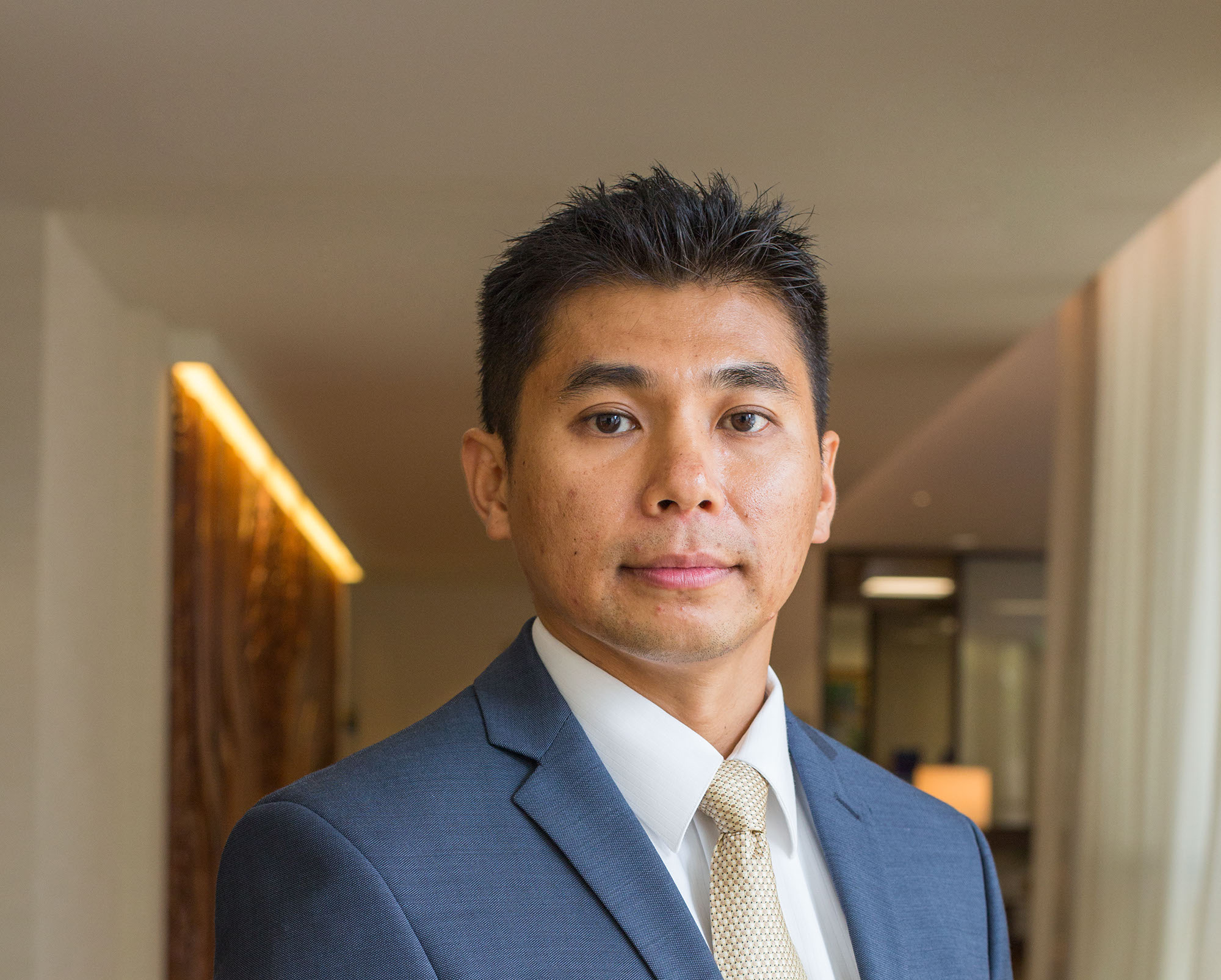Who you gonna call when expert testimony is needed to move certain legal cases forward? Wei-Chin Hwang, Professor of Clinical Psychology at CMC, is one man with the knowledge and experience that can help resolve issues and even break a deadlock.
This summer Professor Hwang testified for the plaintiff in a case involving a 52-year-old man who suffered fatal injuries while working as an electrician. The man was standing on a stepladder and attempted to run a cable through a cable tray that had not been appropriately fastened to the wall. Electrical Systems & Instrumentation, Inc. (ESI) was responsible for making sure that the cable was properly installed and affixed to the side of the building. Unfortunately, working conditions were not safe and the cable tray broke off, causing the electrician to fall off the ladder and hit his head on the concrete, resulting in his death.

“It is very important for companies to ensure that the work they do ensures the safety of hard working people who might potentially be put in danger,” Prof. Hwang says.
Prof. Hwang’s expertise in psychiatric issues as a clinical psychologist, understanding of cultural issues that may come into play in a case and his ability to cite relevant knowledge as a scientist-practitioner creates a high demand for him as a consultant in legal cases.
“My passion in clinical psychology is to help people,” he says. “I love doing so in a variety of ways, including teaching students, training therapists, conducting research, and through expert testimony and educating the public about psychiatric issues. “My ultimate goal as a professor is to have multiple levels of impact and educate people about mental health issues.”
In addition to teaching at CMC and being an expert witness in legal cases and at trial, Prof. Hwang has a small and individualized therapy practice and consulting agency in both Pasadena and Claremont.
According to Prof. Hwang, the ability to clinically help people cope with trauma in their lives, while at the same time making sure that the juries and courts understand the true impact that this type of trauma can have on people’s well-being, cannot be overstated.
“In expert testimony cases, both the plaintiff and defendant side tend to hire people that will support their arguments,” he says. “From the work I have done so far, I think that a lot of doctors provide the public with misinformation and are hired to minimize patient problems. A lot of people speak about their personal opinions or clinical experiences, but are not able to (or choose not to) embed their opinions in scholarly research.”
Prof. Hwang adds that some also tend to pick and choose what research they want to cite, providing a distorted picture that supports the argument they were hired to support.
“I think it is important to provide the public with a broader understanding of the big picture issues, and a more accurate understanding of what the cumulative body of research shows,” he says. “It is also important for our students to learn about these types of issues, thus enhancing their education and understanding of real-world issues.”
Prof. Hwang’s testimony work during this summer case was a departure from his work in a case last year, one that led to a $20 million jury verdict – the largest ever against Southern California Gas Company.
“Last year’s case was a real pleasure to work on because it was focused on helping a person who was injured and needed medical care,” Prof. Hwang says. “This case was different because there was a traumatic and sudden death of a family member, and my job was to help the court understand the impact this can have on the surviving family member’s mental health and well-being.It’s also important to de-stigmatize mental illness so that people feel comfortable getting treatment and the help they need without feeling stereotyped or marginalized.”
According to Prof. Hwang, the types of death resulting from such cases are different from those that are expected and that come naturally. “It is important that surviving family members have access to the services and resources they need to recover in the healthiest way possible,” he says.“It’s also important for the public to understand that these kinds of cases are not just about loss of income from a deceased parent, but also the emotional impact this can have on children and the surviving spouse.”
Prof. Hwang cautions that even if a lawsuit is settled relatively quickly, mental health issues can be affected that hamper people’s ability to move on with their lives. Unfortunately, most lawsuits go on for many years.
The characteristics that make an excellent forensic or psychological consultant or expert witness in a trial are defined differently by different constituencies.
“On the defense side, their definition of a good expert may be one that minimizes patient problems so that the companies that hire them do not have to pay out as much money,” Prof. Hwang says. “From the prosecution side, the definition of a good expert may be one that is focused on patient care and well-being.
“For me, I feel like I am doing a good job if I am presenting an honest and accurate picture of the impact that such traumas can have on people’s lives,” he adds. “As a Professor of Clinical Psychology and somebody who is trained in evidence-based practices, I think it is important for the jury and court to understand and interpret cases through a scientist-practitioner viewpoint.”
##
